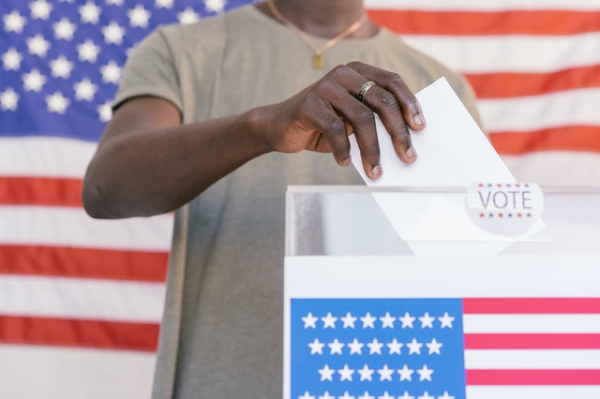
A majority of Texans have voted on Tuesday, November 2, that they do not want the government limiting religious services in any way.
The Christian Headlines reported that results of the elections on amending the Texas Constitution came out with a majority of voters or 62.4% supporting Proposition 3, which bars the government from imposing any public health measures or actions that would limit religious services regardless of the occasion.
On the other hand, the Texas Tribune explained that the election actually involved eight proposed amendments to the state's Constitution that came from approved bills by Congress during the year. Proposition 3 or Freedom To Act is one among the proposals and is one of two amendments that came about due to COVID-19 restrictions. The other, Proposition 6, involved imposing restrictions on visitors to nursing homes and essential caregiver designations.
Proposition 1 entailed rodeo raffles, Proposition 2 focuses on tax financing for county infrastructure, Proposition 4 involves a state judge's eligibility, Proposition 5 establishes the judicial misconduct process of accountability, Proposition 7 provides property tax exemptions for bereaved families, and Proposition 8 provides tax exemptions for military families.
Christianity Daily reported two weeks ago that an election will take place after Proposition 3 passed the Texas Congress with bipartisan support. The law, sponsored by Representative Scott Sanford, was meant to uphold religious freedom from government restrictions on public health orders since houses of worship were shut down along with businesses last year during the height of the COVID-19 pandemic.
The Secretary of State John Scott expounded that Proposition 3, also known by the name SJR 27, "proposes a constitutional amendment barring the State of Texas or a political subdivision from enacting, adopting, or issuing a statute, order, proclamation, decision, or rule that prohibits or limits religious services."
According to the Secretary of State, "the proposed amendment would apply to religious services, including those conducted in churches, congregations, and places of worship, in the state by a religious organization established to support and serve the propagation of a sincerely held religious belief."
Ironically, Proposition 3 has been reported to create a divide among the religious sector with the Texas Catholic Conference of Bishops supporting it along with other Christians such as Houston's Glorious Way Church Pastor John Greiner who find it important.
While Baptist Joint Committee Executive Director Amanda Tyler finds it unnecessary and "damaging" for it conveys religious people seek "special treatment" than care for the overall "good of their communities."
With early voting having commenced last October 18, the Secretary of State released on Wednesday the unofficial results of the election that all proposed amendments have been approved by Texans. Proposition 1 was approved by 84% of Texas with 1,242,625 votes while Proposition 2 received 63% approval with 931,453 votes. Proposition 3's 62% approval came with 925,447 votes against 557,093 votes or 38%.
Proposition 4 and 5 both garnered 59% approval with 845,030 votes and 852,336 votes, respectively. For proposition 6, it received 1,293,922 votes or 88% approval. Proposition 7 was approved by 87% of Texans through 1,285,384 votes and Proposition 8 was approved by 88% at 1,291,920 votes.

















